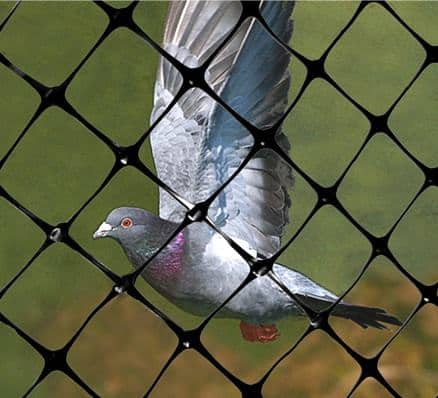In the diverse world of packaging, protection, and industrial applications, the right material can be the difference between success and failure. For many businesses, from food processors to industrial parts suppliers, the solution lies in extruded netting. As a versatile and cost-effective material, extruded netting provides a unique combination of strength, flexibility, and breathability. Partnering with a reliable extruded netting manufacturer is a strategic decision that allows businesses to innovate, protect their products, and streamline their operations.
The Core Advantages of Extruded Netting
Extruded netting is not a one-size-fits-all solution; it’s a highly adaptable product that offers distinct benefits across various industries.
Superior Product Protection: The flexible, yet durable mesh structure of extruded netting acts as a protective sleeve, guarding delicate items from scratches, dents, and surface damage during transit and storage. This is particularly valuable for products like precision-machined parts, gas cylinders, and fragile produce.
Optimal Airflow and Breathability: The open-mesh design allows for excellent air circulation. This feature is critical for the food and agriculture sectors, where it helps prevent moisture buildup and extends the shelf life of fruits and vegetables. It also ensures proper ventilation for products that require it.
Versatility and Customization: A leading manufacturer can produce netting in a wide range of sizes, colors, and mesh patterns. This allows businesses to create custom solutions for specific products, whether they need a tight mesh for small items or a larger, more robust mesh for heavier goods. The material can also be color-coded for easy identification and sorting.
Cost-Effectiveness and Sustainability: Compared to more rigid packaging materials, extruded netting is lightweight, reducing shipping costs. It is also often made from recyclable materials, aligning with modern business goals for sustainability and waste reduction.
How to Choose the Right Extruded Netting Manufacturer
Selecting the right partner is crucial for maximizing the benefits of this material. When evaluating manufacturers, consider these key factors:
Manufacturing Capabilities: Look for a manufacturer with a robust production capacity and the ability to handle both small, custom orders and large-scale bulk orders. Inquire about their equipment and quality control processes.
Material Expertise: A good manufacturer will have deep knowledge of different polymer resins (e.g., HDPE, LDPE, PP) and can recommend the best material for your specific application, considering factors like durability, UV resistance, and chemical compatibility.
Customization Options: The ability to customize mesh size, strand thickness, color, and packaging formats is a key indicator of a versatile partner. This flexibility allows you to fine-tune the netting to your exact needs.
Certifications and Quality Control: Ensure the manufacturer adheres to industry standards and holds relevant certifications. This guarantees consistency and reliability in every batch of product you receive.
Choosing a reliable extruded netting manufacturer is a strategic decision that directly impacts product quality, operational efficiency, and your bottom line. By leveraging the protective, versatile, and cost-effective nature of this material, businesses can secure their products, enhance their brand, and gain a competitive edge. It’s about finding a partner who understands your unique challenges and can deliver innovative, customized solutions that protect your goods at every stage.
FAQ
Q1: What is extruded netting typically made from? A: Extruded netting is commonly made from high-density polyethylene (HDPE), low-density polyethylene (LDPE), or polypropylene (PP), depending on the required properties like strength, flexibility, and chemical resistance.
Q2: Can extruded netting be used for food packaging? A: Yes, many types of extruded netting are approved for food-contact applications and are widely used to package produce like citrus fruits, avocados, and onions, as well as hams and other food products.
Q3: Is extruded netting recyclable? A: Yes, most extruded netting made from HDPE, LDPE, and PP is recyclable. This makes it an environmentally friendly choice for businesses focused on sustainability.
Q4: What are some common industrial uses for extruded netting? A: Industrial applications include protecting metal parts from scratches, acting as a filter or separation layer, and providing reinforcement for other materials. It’s also used for pallet wrap, marine aquaculture, and fencing.
Post time: Aug-08-2025

